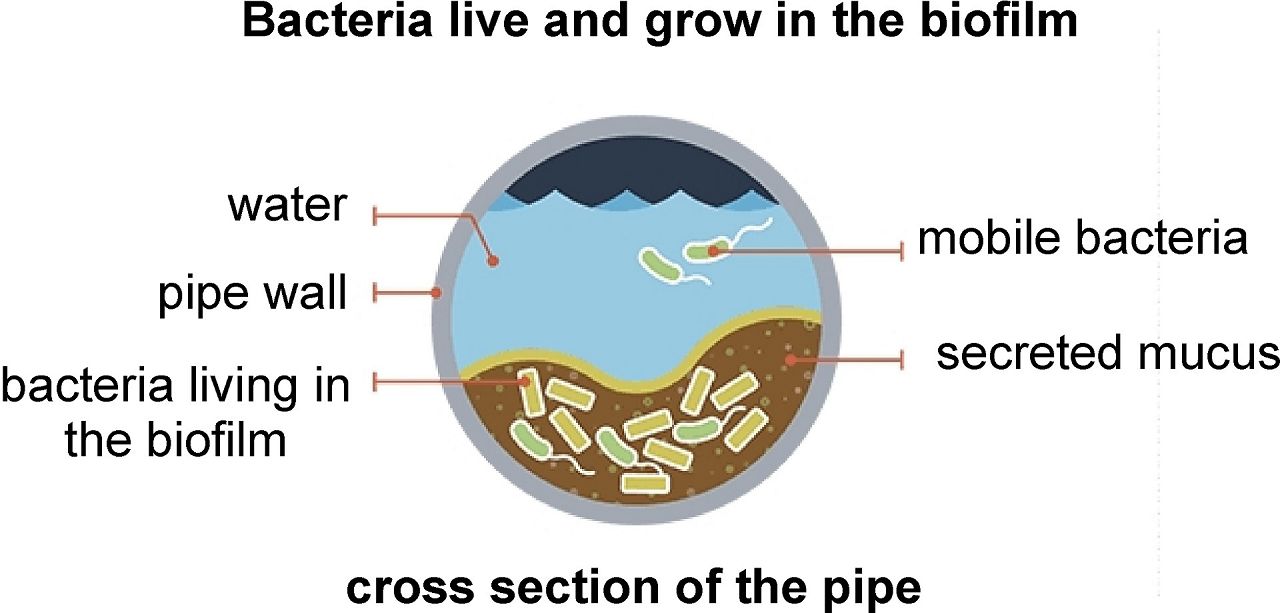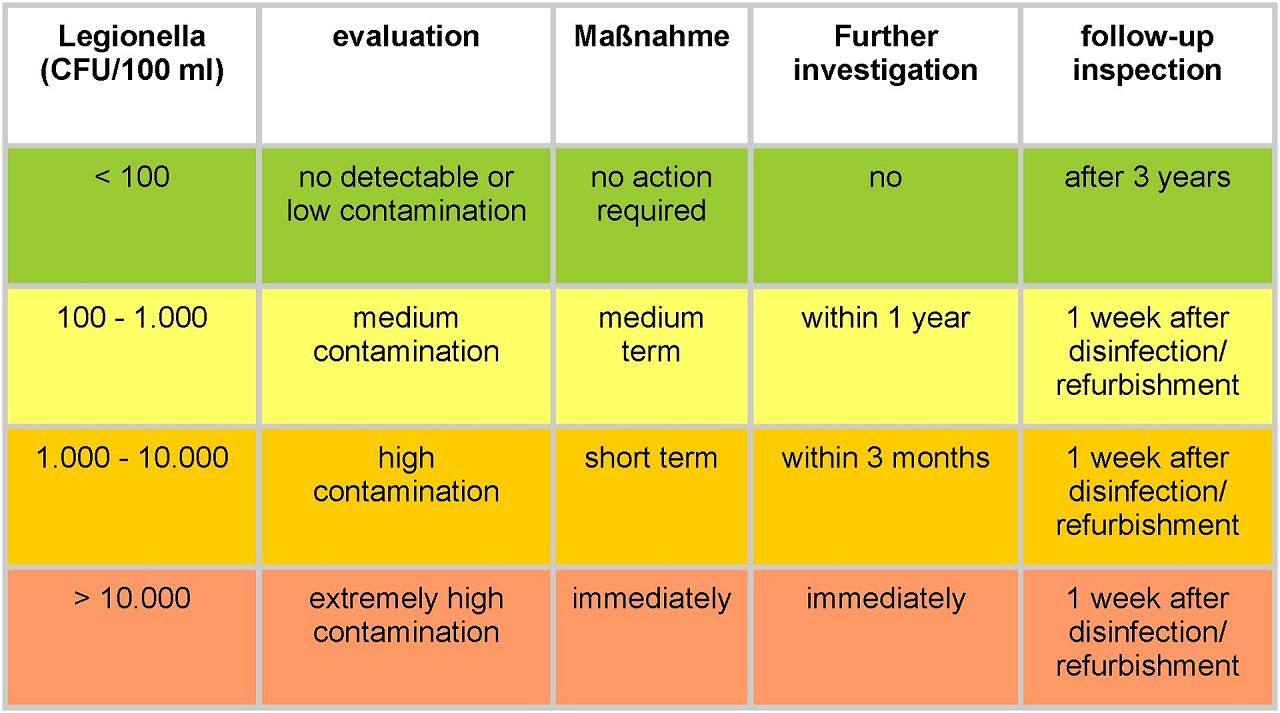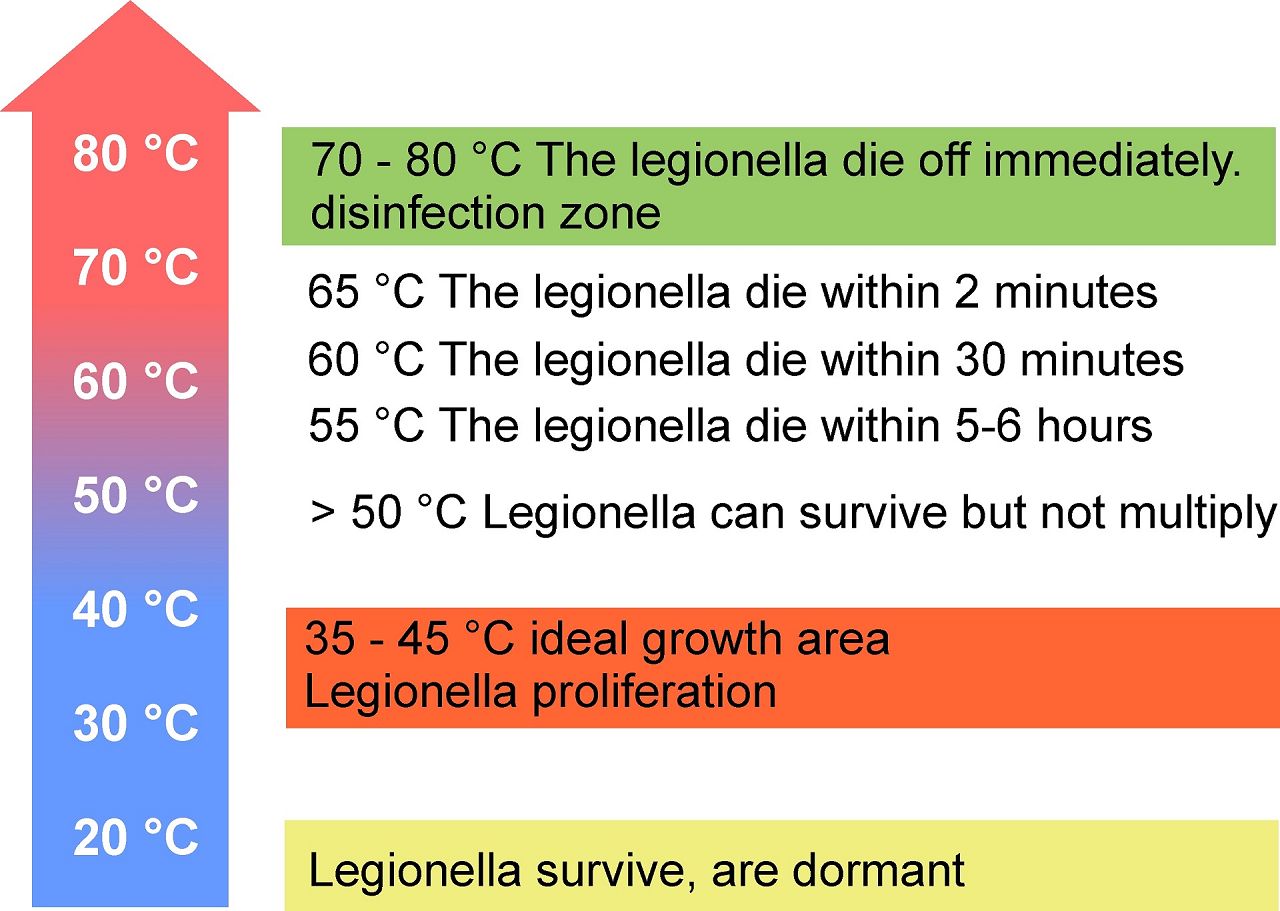Legionella - what you should know

Legionella are heat-loving, rod-shaped bacteria that occur in moist soil and in fresh water. They cannot survive in salt water. Legionella prefer to multiply between 25 °C and 45 °C.
Like other bacteria, Legionella attach themselves to the finest pores/irregularities of the piping system and form a biofilm there. They also prefer oily coatings, such as those formed by manganese (e.g. from wells). The growth of biofilms is promoted by nutrients (e.g. in well water) , rubber materials (e.g. pull-out kitchen faucet), elastomers (e.g. plastic pipes) and silicones.
Where water is not strongly heated and stands for long periods, they can then multiply en masse in biofilms and become a serious health problem.
Sources of contamination include shower systems, swimming pools, whirlpools, air conditioning systems with humidification, high-pressure cleaners, oral irrigators, dishwashing sprays, car washes, fountains and cooling towers. Large water storage tanks holding more than 300 liters are especially susceptible. If it's warm enough, pipes where the water has been standing for a long time are also a possibility.
Under these circumstances, or if your water test shows an elevated colony count at 36 °C incubation temperature, a Legionella test is recommended.
Legionella bacteria become dangerous when they enter the lungs via very fine water droplets (aerosols), e.g. through inhalation when showering. There they can cause the notifiable legionellosis (also called legionnaires' disease), a type of pneumonia. Symptoms include high fever, chills, nausea, diarrhea, muscle and joint pain, extreme headache, and possibly other serious complications. An estimated 4,500 people fall victim to this disease each year.
Another form of the disease is Pontiac fever, which is similar to summer flu and is harmless.
It does not cause illness through the skin or the digestive tract. Therefore, contaminated water can be used for drinking, washing clothes and dishes.
So far, 60 Legionella species are known. We check for Legionella pneumophila in our test. According to the Robert Koch Institute (RKI), it is the most dangerous species, causing about 90% of all diseases. We offer an orienting analysis, i.e. we determine whether there is a contamination and how strong it is.
If a contamination with Legionella (> 100 CFU/100 ml) is measured, you have to inform the responsible health authority. If so, further systemic investigations are necessary. The causes of the contamination, the source of contamination and the necessary remediation measures must be determined. This requires official, accredited sampling and analyses, which we cannot offer you
Legionella can be killed by heating the water. However, higher temperatures are required for this: Reliable, rapid killing is only guaranteed at temperatures above 70 °C.



